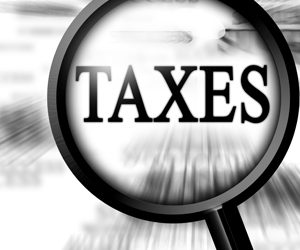I believe another mega-rich guy, the Texan H. Ross Perot, once said that the “devil is in the details.”
With that, one of the details of Donald John Trump’s tax proposal must include just how this “reform” affects the individual who has pitched it.
Yes, I’m talking about tax returns. Release them, Mr. President.
Treasury Secretary Steven Mnuchin says the president will not release those tax returns. There’s been enough information released already, he said. I disagree, quite naturally, with what the secretary suggests.
The major points about the president’s tax plan include a dramatic reduction — from 35 percent to 15 percent — in corporate income taxes for small businesses and a huge increase in the standard deduction for individuals’ tax returns.
As The Hill reported: “The plan would repeal taxes that mostly affect wealthy Americans, such as the alternative minimum tax for individuals and the estate tax. But it would also ‘eliminate targeted tax breaks that mainly benefit the wealthiest taxpayers,’ according to the one-page outline released Wednesday.”
Why is release of the president’s tax returns relevant? He has not divested himself of his huge business interests. Therefore, he stands to be affected in some fashion by what he has pitched. Americans have the right to know just how Donald Trump’s portfolio is affected.
He isn’t likely to release those returns just because many of his fellow Americans want him to do so. Still, it’s worth making the demand yet again. I believe I will keep yammering about the returns during Trump’s time in office.
But here’s another wrinkle.
How does the tax plan affect revenue to pay for at least two major Trump proposals: infrastructure repair and, yep, that dadgum wall.
Trump wants to spend about a trillion bucks to fix highways, bridges and airports. Will these tax cuts reduce cash flow into the Treasury, making it impossible to “pay as you go” on these projects?
Oh, and the wall is going to cost — according to varying estimates — as much as $25 billion. How does the president intend to pay for that project? Do not tell me “Mexico is going to pay for it.” That will not happen.
As it’s often said: The president proposes, Congress disposes. You can bet your last nickel that congressional progressives will continue to insist that Trump release his tax returns as condition for any tax overhaul.
My gut tells me the disposition of this tax plan — absent the president’s release of his tax returns — continues to be one of the great mysteries in the nation’s capital.
